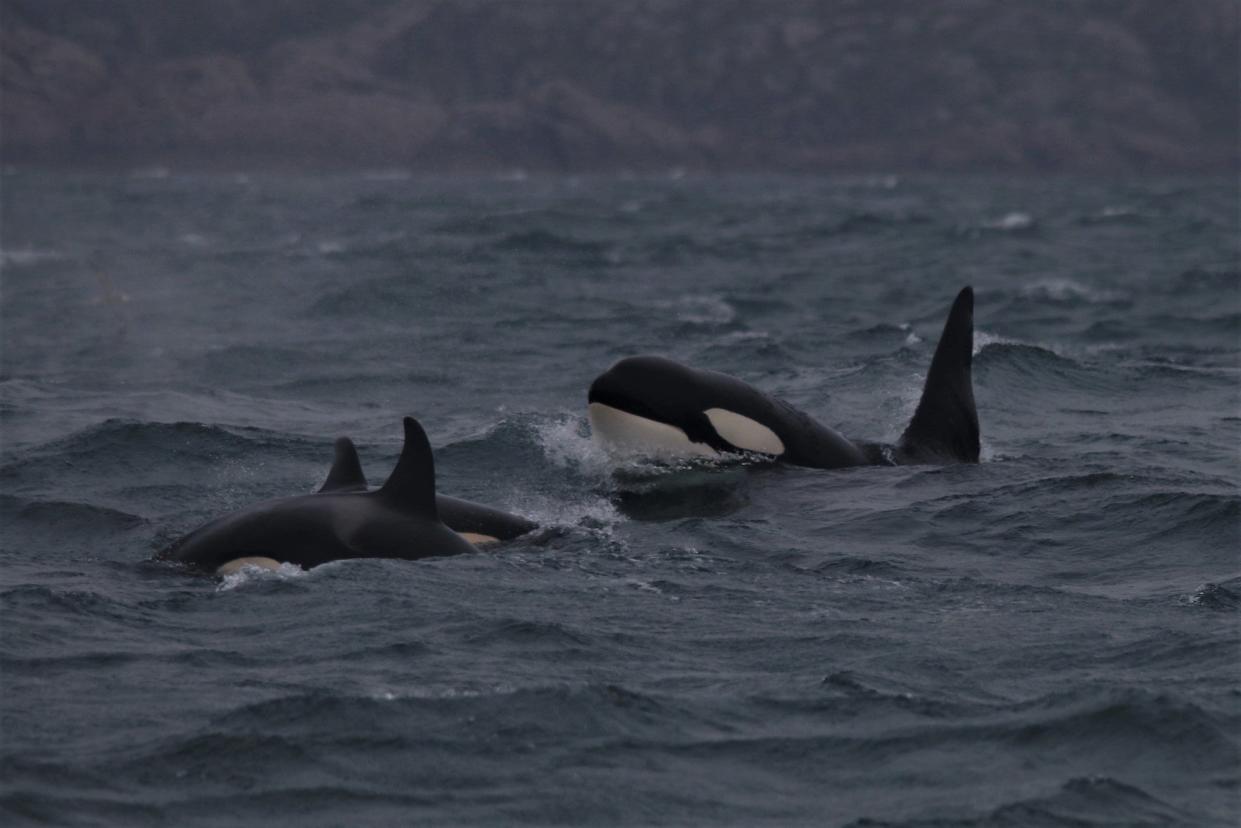Killer whales spotted off the Cornish coast

The pod is at risk of extinction due to human impacts
(Will McEnery/Cornwall Wildlife Trust/PA Wire)Two killer whales have been sighted off the coast of Cornwall in what wildlife experts say may be the first record of the UK’s resident pod of orcas in England.
Nature photographer Will McEnery-Cartwright was enjoying a coffee on Wednesday at the open air Minack Theatre, four miles from Land’s End, when he saw two whale fins in the water.
The whales have since identified as ‘John Coe’ and ‘Aquarius’ by the Cornwall Wildlife Trust. They are part of the ‘West Coast Community’, a pod of eight individuals.
Mr McEnery-Cartwright wrote on Instagram: “Well today something crazy happened. I was taking in the views and drinking a coffee at the Minack Theatre and I spotted a whale fin in the distance.
“Couldn’t believe my eyes when I realised it was an orca (killer whale). Wow.
“Showed a staff member called Dave who confirmed it was an orca. Looking at all my pictures again and doing some research online it looks like there might be more than one, possibly John Coe with the distinctive notch on the dorsal fin and a chunk out of the tail fluke.”
Cornwall Wildlife Trust’s marine team said it was “amazed” to hear about the sightings, adding that this may be the first record of the UK’s only resident population of orcas in England.
Abby Crosby, Marine Conservation Officer at Cornwall Wildlife Trust, said: “The Trust’s Seaquest Southwest team were incredibly excited to hear about this orca report, and even more delighted when the photos received then validated the record and identified these rare and beautiful individuals as John Coe and Aquarius.
“This is the first official orca record in our databases with associated photos in over a decade, and further proof of the value of our coastal seas in supporting these magnificent creatures.”
The ‘West Coast Community’ orcas can be distinguished from other groups of killer whales by their unusual sloping eye patch and larger size, the trust said.
Despite being regularly monitored, some whales have not been seen in recent years. No calves have been observed since monitoring began in the 1990s.
The pod is at risk of extinction due to human impacts, according to the Hebridean Whale & Dolphin Trust.
Read More
UK has not broken 'formal commitments' with aid cuts, Raab says
Jersey protest: A brief history of British fishing feuds, from the cod wars to Brexit

